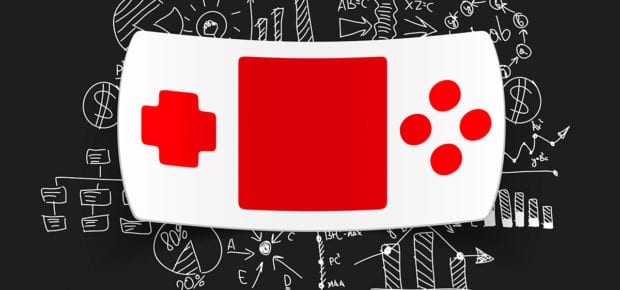July 9, 2015
Gaming has had mixed reception for years. While some people make claims that gamers are antisocial, there is no denying that gaming is an ever-expanding industry.
Gaming has had mixed reception for years. While some people make claims that gamers are antisocial, there is no denying that gaming is an ever-expanding industry. The U.S. video game industry pulled in nearly $15 billion in revenue in 2014, and is projected to surpass $19 billion by 2019. For scientists, tapping into this multi-billion dollar industry has proved especially beneficial as a means educate young (and old) minds about scientific and medical advancements.
Scientists have argued that video games are viable tools for science education, and as Vincent Stevenson stated in his 2013 article, they’ve broken down the core concepts of video games into three “scaffolds”: motivational, cognitive, and metacognitive. The motivational scaffold – which includes curiosity, feedback, praise, etc. – can be used to motivate learning. The cognitive scaffold speaks to our inherent problem solving and critical thinking tendencies. The metacognitive scaffold is the player’s ability to change cognitive constructs based on new information they are faced with. These basic principles of gaming provide a framework for how a company can leverage gaming to develop skills within the medical field.
While doctors use games to learn and practice techniques, they’re also being used by recovering patients, too. “Current games in medicine encourage pro-social behaviors with patients in recovery from some types of surgeries and/or injuries. With new technology, we will find even more ways to integrate games to promote healthy behavior and heal people mentally and physically.” said Elena Bertozzi, IEEE Member and Professor of Digital Game Design and Development at Quinnipiac University. While technology continues to evolve, gamification within the medical field will only progress with technology, improving the quality and effect of medical related games.
When it comes to education, professors and students prefer game-based learning over traditional lectures and textbooks. A survey of 434 residency program directors showed over 90% support for games in residency education and 80% of medical students surveyed (47% of whom do not play video games) believed that video games have educational value, according to Stevenson’s article. There aren’t many students that would prefer to pour over their textbooks for countless hours when they could be playing “games” on their devices.
Video game technology is growing at an exponential rate, offering the same sort of growth potential to the industries that embrace the technology. If games continue to be used for educational purposes, it’s likely video game learning will become the main medium for education in the medical field.





 AI Through Our Ages
AI Through Our Ages Liquid Infrastructure: Our Planet's Most Precious Resource
Liquid Infrastructure: Our Planet's Most Precious Resource The Impact of Technology in 2025
The Impact of Technology in 2025 Quantum and AI: Safeguards or Threats to Cybersecurity?
Quantum and AI: Safeguards or Threats to Cybersecurity? Why AI Can't Live Without Us
Why AI Can't Live Without Us Bits, Bytes, Buildings and Bridges: Digital-Driven Infrastructure
Bits, Bytes, Buildings and Bridges: Digital-Driven Infrastructure Impact of Technology in 2024
Impact of Technology in 2024 Emerging AI Cybersecurity Challenges and Solutions
Emerging AI Cybersecurity Challenges and Solutions The Skies are Unlimited
The Skies are Unlimited Smart Cities 2030: How Tech is Reshaping Urbanscapes
Smart Cities 2030: How Tech is Reshaping Urbanscapes Impact of Technology 2023
Impact of Technology 2023 Cybersecurity for Life-Changing Innovations
Cybersecurity for Life-Changing Innovations Smarter Wearables Healthier Life
Smarter Wearables Healthier Life Infrastructure In Motion
Infrastructure In Motion The Impact of Tech in 2022 and Beyond
The Impact of Tech in 2022 and Beyond Cybersecurity, Technology and Protecting Our World
Cybersecurity, Technology and Protecting Our World How Technology Helps us Understand Our Health and Wellness
How Technology Helps us Understand Our Health and Wellness The Resilience of Humanity
The Resilience of Humanity Harnessing and Sustaining our Natural Resources
Harnessing and Sustaining our Natural Resources Creating Healthy Spaces Through Technology
Creating Healthy Spaces Through Technology Exceptional Infrastructure Challenges, Technology and Humanity
Exceptional Infrastructure Challenges, Technology and Humanity The Global Impact of IEEE's 802 Standards
The Global Impact of IEEE's 802 Standards Scenes of our Cyber Lives: The Security Threats and Technology Solutions Protecting Us
Scenes of our Cyber Lives: The Security Threats and Technology Solutions Protecting Us How Millennial Parents are Embracing Health and Wellness Technologies for Their Generation Alpha Kids
How Millennial Parents are Embracing Health and Wellness Technologies for Their Generation Alpha Kids Space Exploration, Technology and Our Lives
Space Exploration, Technology and Our Lives Global Innovation and the Environment
Global Innovation and the Environment How Technology, Privacy and Security are Changing Each Other (And Us)
How Technology, Privacy and Security are Changing Each Other (And Us) Find us in booth 31506, LVCC South Hall 3 and experience the Technology Moon Walk
Find us in booth 31506, LVCC South Hall 3 and experience the Technology Moon Walk Virtual and Mixed Reality
Virtual and Mixed Reality How Robots are Improving our Health
How Robots are Improving our Health IEEE Experts and the Robots They are Teaching
IEEE Experts and the Robots They are Teaching See how millennial parents around the world see AI impacting the lives of their tech-infused offspring
See how millennial parents around the world see AI impacting the lives of their tech-infused offspring Take the journey from farm to table and learn how IoT will help us reach the rising demand for food production
Take the journey from farm to table and learn how IoT will help us reach the rising demand for food production Watch technical experts discuss the latest cyber threats
Watch technical experts discuss the latest cyber threats Explore how researchers, teachers, explorers, healthcare and medical professionals use immersive technologies
Explore how researchers, teachers, explorers, healthcare and medical professionals use immersive technologies Follow the timeline to see how Generation AI will be impacted by technology
Follow the timeline to see how Generation AI will be impacted by technology Learn how your IoT data can be used by experiencing a day in a connected life
Learn how your IoT data can be used by experiencing a day in a connected life Listen to technical experts discuss the biggest security threats today
Listen to technical experts discuss the biggest security threats today See how tech has influenced and evolved with the Games
See how tech has influenced and evolved with the Games Enter our virtual home to explore the IoT (Internet of Things) technologies
Enter our virtual home to explore the IoT (Internet of Things) technologies Explore an interactive map showcasing exciting innovations in robotics
Explore an interactive map showcasing exciting innovations in robotics Interactively explore A.I. in recent Hollywood movies
Interactively explore A.I. in recent Hollywood movies Get immersed in technologies that will improve patients' lives
Get immersed in technologies that will improve patients' lives